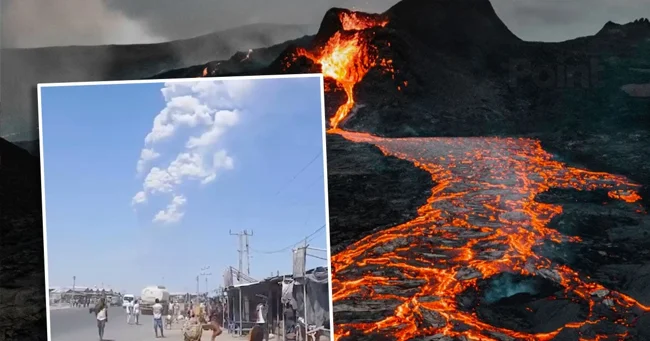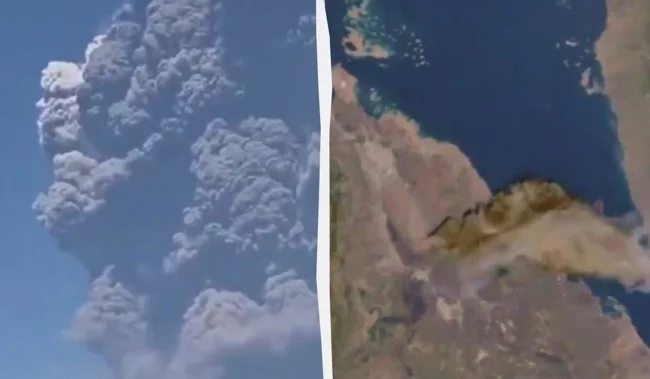Ethiopia's Haili Gubbi volcano erupted for the first time in 10,000 years (2 photos + 1 video)
26 November 2025
Satellite images captured a rare eruption of Ethiopia's Haili Gubbi volcano on Sunday, spewing powerful plumes of ash toward Yemen and Oman. According to Newsweek, this is the volcano's first activity in approximately 10,000 years, giving scientists a unique opportunity to study a site previously thought to be dormant. 
According to researchers, the event demonstrates that even volcanoes that have remained dormant for millennia can suddenly awaken, posing risks to aviation, regional flights, and local populations. The Afrara Rift, where Haili Gubbi is located, is one of the most active geological regions in East Africa.
"Real-time satellite data allows us to monitor the extent of the eruption and the direction of ash cloud movement, which is key for emergency preparedness and understanding volcanic activity in the region," the article states.
According to the Volcanic Ash Advisory Centre (VAAC) in Toulouse, the eruption began around 8:30 UTC (Universal Time Coordinated). During the explosive phase, ash was ejected to a height of 13.7 kilometers. The European Space Agency's Sentinel-2 satellite recorded the extent of the ash cloud and its movement. According to the latest VAAC report, activity has ceased, but monitoring continues.























